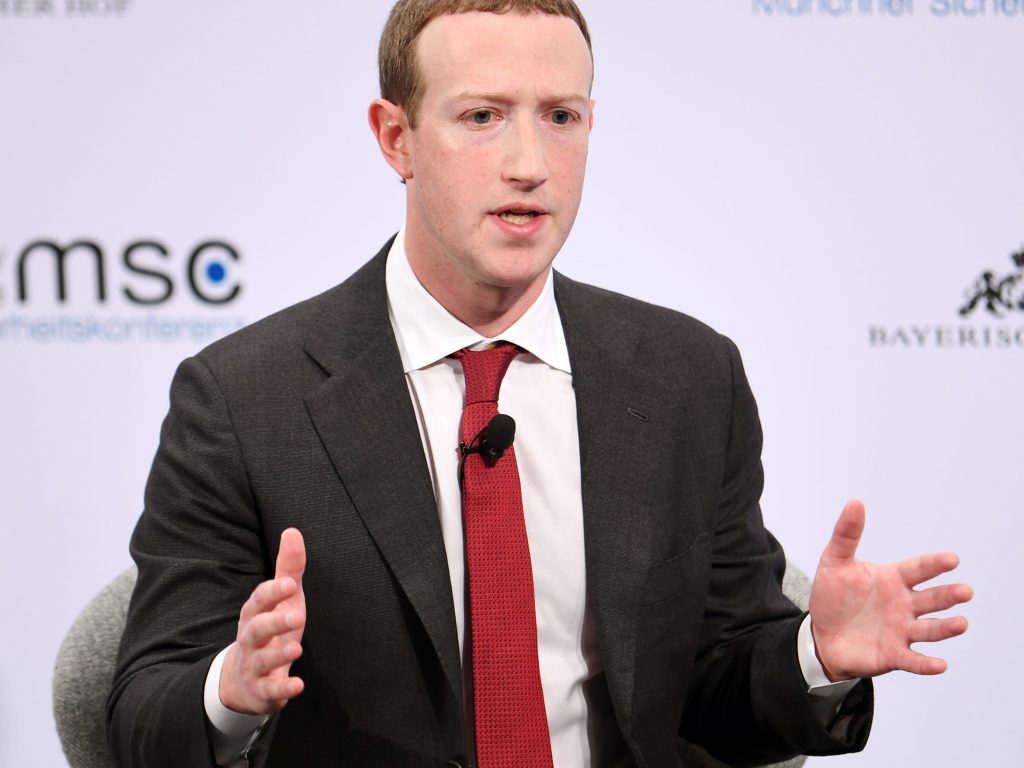- Mark Zuckerberg said Wednesday he was "pretty confident" Meta is heading "in a good direction."
- He spoke after Meta's third-quarter earnings missed Wall Street's forecasts and its stock crashed 20%.
- Meta said it plans to keep investing heavily in its metaverse project, which is hammering its profits.
Meta CEO Mark Zuckerberg said Wednesday he was "pretty confident" his company is heading "in a good direction" as its stock cratered 20% on the back of a worse-than-expected third-quarter earnings report.
"We've been through a couple of these cycles before already, and I'm pretty confident this is going in a good direction," Zuckerberg said in a call with analysts after the report was published.
He added: "And while we continue to navigate some challenging dynamics – a volatile macroeconomy, increasing competition, ads signal loss, and growing costs from our long-term investments – I have to say that our product trends look better from what I see than some of the commentary I've seen suggests."
Meta's third-quarter net income crashed 52% year-on-year, to $4.4 billion, as R&D costs jumped 45% largely because of the company's investments in the metaverse. Meta stock fell almost 20% in after-hours trading Wednesday, to $104.30, its lowest level since 2016.
The scale of Meta's metaverse investments are being closely scrutinized by investors who are concerned they're detracting from the company's core social-media businesses, such as Facebook and Instagram.
Zuckerberg was grilled on Wednesday's earnings call by analysts keen to know more about the company's metaverse plans, engagement levels for TikTok competitor Instagram Reels, and shrinking digital advertising revenue.
Zuckerberg insisted Meta's work on the metaverse would be "of historic importance."
He acknowledged that, in terms of revenue, "we're still behind where I think we should be," but said the company should return to "healthier" revenue growth next year. For the second quarter of 2022, Meta posted its first-ever year-on-year revenue decline, of 0.9%.
Meta splits its business into two main segments. Reality Labs, which handles Oculus and everything metaverse-related, reported third-quarter revenue of just $285 million – a drop of almost half compared with the same period in 2021. The segment has lost $9.4 billion so far this year, including $3.7 billion in the fourth quarter – and its expenses will "increase meaningfully" in 2023, Zuckerberg warned.
On Tuesday, Brad Gerstner, whose fund Altimeter Capital owns hundreds of millions of dollars' worth of Meta shares, urged the social-media company to cut back on its metaverse investments and reduce its headcount by at least 20%. The company has "lost the confidence of investors," he wrote in an open letter.
Net income from Meta's social-media segment also crashed, falling by more than a quarter to $9.3 billion in the three months to September 30. But Zuckerberg said engagement with its apps was still high, with the number of daily users on Facebook "the highest it's ever been," and more than 2 billion people using WhatsApp each day.
While expenditure on metaverse projects is set to rise, Meta is cracking the whip in other departments. The company has "increased scrutiny" on all areas of operating expenses, CFO David Wehner said, including reducing its office footprint.
Wehner also said that Meta was freezing hiring in some teams and "shrinking" headcount in others, with hiring limited to the company's "highest priorities." Meta said that it had increased its total headcount by 28% year-over-year to 87,314, and Wehner said that he expected it to remain roughly flat until the end of 2023.
Correction: October 27, 2022 — An earlier version of this story incorrectly attributed some quotes in the final two paragraphs. Comments made about "increased scrutiny" and hiring policy changes were made by CFO David Wehner and by the company in a press release, not by Mark Zuckerberg.
